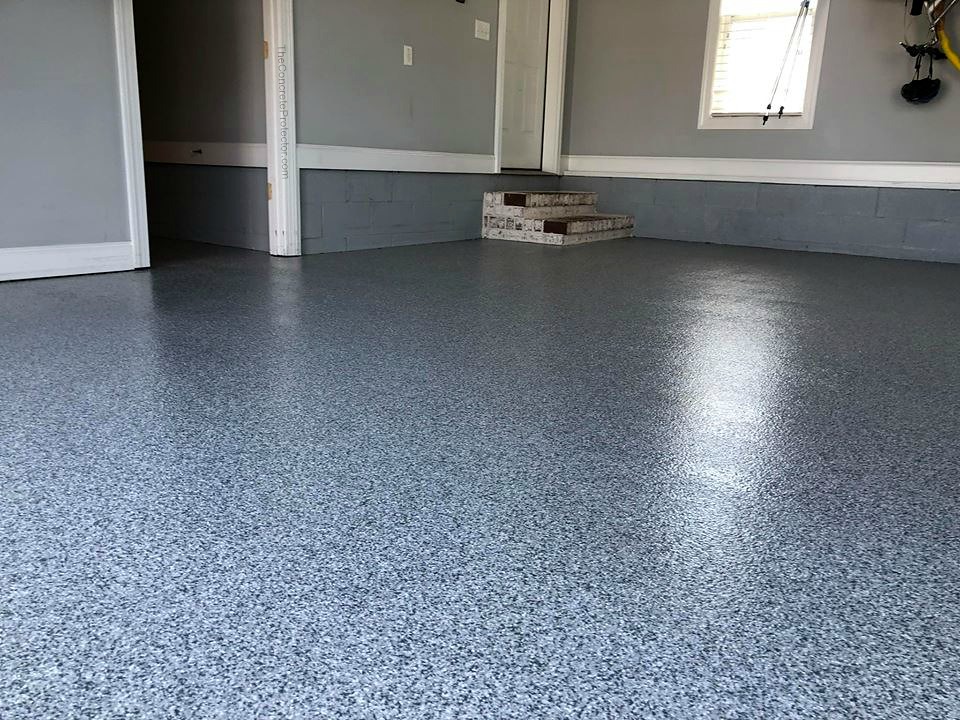Garage Floor Coatings: Transforming Your Space with Durability and Style
Garage floors endure a lot of wear and tear, from heavy vehicles to oil spills and chemical exposure. A high-quality garage floor coating can protect your concrete while enhancing the overall appearance of your space. Whether you're looking to create a showroom-worthy garage or simply want a more durable and easy-to-clean surface, garage floor coatings offer a range of benefits. Let's explore the world of garage floor coatings, focusing on popular options like epoxy and polyaspartic finishes.

Why choose epoxy for your garage floor?
Epoxy floor coatings have been a popular choice for garage floors for many years. This two-part coating system consists of a resin and a hardener that, when mixed, create a durable and attractive finish. Epoxy coatings offer excellent adhesion to concrete surfaces and provide a high-gloss, seamless finish that is both attractive and easy to clean. They are also highly resistant to chemicals, oils, and abrasions, making them ideal for garage environments.
What benefits does polyaspartic coating offer?
Polyaspartic coatings are a newer technology that has gained popularity in recent years. These coatings offer many of the same benefits as epoxy but with some additional advantages. Polyaspartic coatings cure much faster than traditional epoxy, allowing for quicker installation and return to service. They also have excellent UV resistance, which means they won’t yellow or fade over time when exposed to sunlight. Polyaspartic coatings are highly durable and can withstand extreme temperatures, making them suitable for both indoor and outdoor applications.
How do epoxy and polyaspartic coatings compare?
When choosing between epoxy and polyaspartic coatings for your garage floor, it’s essential to consider their relative strengths and weaknesses. Here’s a comparison of the two options:
| Feature | Epoxy Coating | Polyaspartic Coating |
|---|---|---|
| Durability | Good | Excellent |
| UV Resistance | Poor to Fair | Excellent |
| Cure Time | 24-72 hours | 2-4 hours |
| Temperature Tolerance | Limited | Excellent |
| Cost | Lower | Higher |
| Application Difficulty | Moderate | More challenging |
| Chemical Resistance | Good | Excellent |
Prices, rates, or cost estimates mentioned in this article are based on the latest available information but may change over time. Independent research is advised before making financial decisions.
What is the application process for garage floor coatings?
The application process for garage floor coatings typically involves several steps:
-
Surface preparation: This crucial step includes cleaning the concrete thoroughly and addressing any cracks or imperfections.
-
Etching or grinding: The concrete surface must be roughened to ensure proper adhesion of the coating.
-
Priming: A primer is often applied to improve the bond between the concrete and the coating.
-
Coating application: The chosen coating (epoxy or polyaspartic) is applied in one or more layers, depending on the desired thickness and finish.
-
Optional additives: Color flakes or anti-slip additives may be incorporated for enhanced aesthetics or safety.
-
Topcoat application: A clear topcoat is often applied to provide additional protection and shine.
How long do garage floor coatings last?
The longevity of garage floor coatings depends on several factors, including the type of coating, quality of installation, and level of use and maintenance. Generally, a well-applied epoxy coating can last 5-10 years, while a high-quality polyaspartic coating may last 10-15 years or more. Regular cleaning and proper care can significantly extend the life of your garage floor coating.
In conclusion, garage floor coatings offer an excellent way to protect and enhance your garage space. Whether you choose epoxy or polyaspartic, these coatings provide durability, improved aesthetics, and easier maintenance. By considering your specific needs and budget, you can select the right coating to transform your garage floor into a long-lasting, attractive surface that withstands the rigors of daily use.






